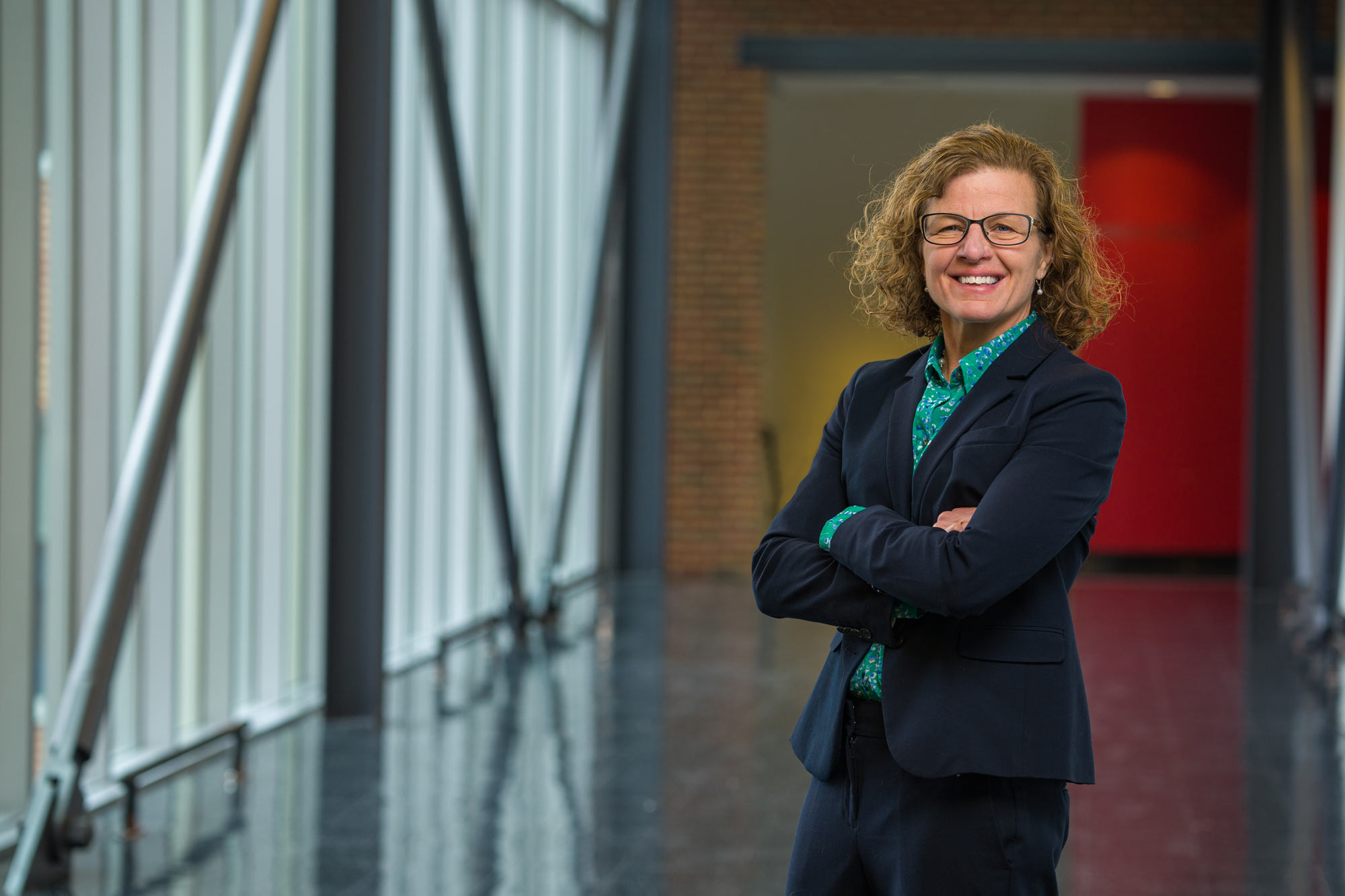
“I became a civil engineer because my parents worked in construction. I was an excellent student in math and science, so engineering seemed like a reasonable option,” she says. “I expected to receive my degree and work. I had no idea that I would spend my career in higher education. In fact, I had no idea that was even an option.”
Gruden credits UNH as the spark that allowed that idea to catch fire.
“I came to believe that I could excel in graduate school and that a graduate degree would benefit my personal and professional growth,” explains the Goffstown, New Hampshire, native, who recently served as vice provost for academic administration and faculty affairs at the University of Toledo. “Before the mentoring I received during my work study experience, I had never even considered graduate school.”
Though Gruden expects CEPS to undertake a range of efforts and initiatives in her time as dean, she singles out one as paramount: addressing the concerns that have surfaced from recent calls for social justice.
“I am committed to providing pathways for success to students of all backgrounds,” she says. “To do so, we need to create an inclusive and collaborative climate.”
Gruden wants to accelerate the college’s efforts to increase diversity, equity and inclusion both as a moral imperative and because diverse perspectives drive the productivity, creativity and innovation needed to meet emerging challenges. The recent establishment of the CEPS Diversity, Equity and Inclusion committee is a start in that process.
“We must educate ourselves on how our institution can make all people feel welcomed, supported and respected so that we may attract, retain and develop diverse talent at UNH,” she says.
UNH’s commitment to student success and its designation as a top-tier research institution drew Gruden back to her roots. She plans to build on the existing academic and research excellence through the collective development of a new strategic plan that is likely to focus on interdisciplinary collaboration, strengthening talent pipelines and deepening community engagement.
These new opportunities will also require change — including the development of academic programs in emerging formats and modalities — to thrive in a competitive market. The pandemic has accelerated this shift, and Gruden expects some of the changes are here to stay. She wants to ensure that CEPS remains ahead of the curve.
Her experience in Toledo’s College of Graduate Studies will help. There, she led the launch of progressive marketing, recruitment and enrollment strategies — an effort that involved managing faculty and staff representing more than 4,200 students and 750 faculty members in 170-plus graduate programs. She was recognized multiple times for her excellence in teaching, research, outreach and engagement, reflecting both her administrative work and her academic focus on applied environmental biology and stormwater asset monitoring.
In returning to UNH, Gruden notes the many upgrades to academic buildings and laboratories but says the beauty of the campus and UNH’s most important asset — its dedicated faculty — remain unchanged.
“The faculty and staff are still clearly committed to student achievement and well-being, both academic and personal,” says Gruden, who replaces Chuck Zercher. “I am eager to work with them to provide our students with a world-class educational experience that will transform their lives and the communities around them.”